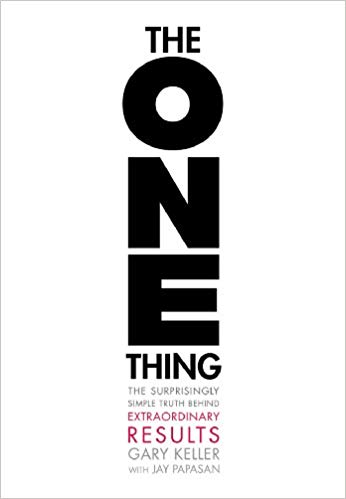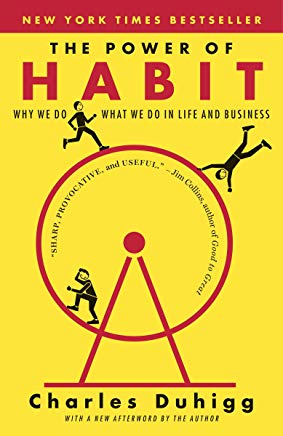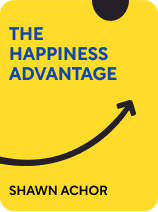

This article gives you a glimpse of what you can learn with Shortform. Shortform has the world’s best guides to 1000+ nonfiction books, plus other resources to help you accelerate your learning.
Want to learn faster and get smarter? Sign up for a free trial here .
What exactly is willpower, and how does it work? How does your capacity for willpower influence your life outcomes?
Willpower is critical to success. But you likely will struggle if you don’t understand how it works and how to manage it. Once you know how to increase willpower and use it effectively, you set yourself up for success.
Learn about the importance of willpower, how it works, and how to recharge it when your reserves run low.
Why Is Willpower Important?
Our willpower may be the most significant factor in determining the quality of our lives. There are several influential psychological studies that show strong willpower in children predicts positive life outcomes, including in school, health, and financial stability.
Willpower is the ability to control your impulses and resist instant gratification in favor of long-term, delayed happiness. This inner resource is primarily about how you control your attention and is mostly driven by a top-down process where your conscious cognition overcomes your subconscious urges. According to Daniel Goleman, the author of Focus, people who can resist the strong pull of instant gratification do so with three techniques:
- They shift their focus away from the object of their desire.
- They focus on something else to keep their attention off the desired object (for example, they might mull over a conversation they had that morning—anything to keep their thoughts averted).
- They keep their longer-term goal in mind.
These techniques are a part of what Goleman calls executive control, which includes the selective attention skills of shifting your focus and keeping it locked in on something new. According to Goleman, the executive control skills that drive your willpower are tied to genetic factors. However, like most things, executive control is influenced by our environments and experiences, and they can be developed and strengthened through tactics.
The Psychology of Willpower
In psychology, willpower is most commonly called “self-control.” Self-control is what allows us to override the tendency to choose immediate gratification in the interests of our long-term goals. In the human brain, self-control is governed by the prefrontal cortex. Some people are born with a larger, better developed prefrontal cortex than others, which makes a difference in their behaviors. When people with a larger prefrontal cortex think of saying “yes” to a second helping of dessert, their brains remind them that this is a poor idea, and they say “no” instead.
The rest of us have to contend with having what scientists call “one brain but two minds.” One mind caters to immediate gratification. The other mind delays gratification in the interest of achieving long-term goals. Our prefrontal cortex struggles to keep us focused on the long game, but when we are tired, distracted, stressed, or even mildly intoxicated, we tend to give in to immediate gratification.
How to Increase Willpower
While our capacity for willpower is, to a large extent, determined by our brains (specifically, the development of our prefrontal cortex), there are things we can do when our willpower reserves are running low.
Feed Your Brain
One way to recharge your willpower is to feed it. Your brain consumes one-fifth of the calories your body burns. When your brain isn’t getting enough food energy, you lose willpower.
What happens is that when nutrients run low, your body prioritizes which parts of the brain get the available calories. The parts of the brain that regulate breathing and nervous responses get first dibs. There may be nothing left for the prefrontal cortex, which is responsible for exercising willpower.
Also, exercising willpower leads to a drop in blood glucose, which diminishes mental performance. Researchers gave two groups a task requiring willpower, then followed up with another willpower task. Between the two tasks, one group got a glass of sugar-laden Kool-Aid, while the other got a placebo drink. The first group made half as many errors on the next task.
Researchers concluded that willpower is a mental muscle that needs time to recover from use. If you use it for one task, less capacity will be available for the next unless you refuel. You need to feed your brain. The most effective fuels are complex carbohydrates and proteins, which keep blood sugar steady over long periods, although simple carbs work for quick energy boosts.
Build a Routine
Another way to increase your willpower is to anticipate when it’s likely to dip and build a specific plan beforehand for how you’re going to handle it. This is especially useful for building habits, which requires a lot of willpower before the behavior becomes ingrained.
According to Charles Duhigg, the author of The Power of Habit, your willpower dips at the most painful points of a behavior. For example, if you want to start running, the most painful point is probably when you get off the couch, put on your shoes, and take the first 20 steps. After that, you can get into the zone.
Construct a routine ahead of time to push through the pain, and keep practicing the behavior until it becomes a habit. You don’t necessarily need to have a greater bank of willpower–you just need to make self-control automatic so you don’t even think about it, and this conserves willpower for later.
How to Increase Willpower Using Habits
In The Happiness Advantage, Shawn Achor recommends that you turn behaviors that require willpower into habits. By turning them into habits, you won’t always have to rely on willpower to help you to make good choices. He gives a few suggestions on how to make new behaviors stick with minimum willpower:
- Minimize the activation energy—the motivation and momentum—required to do the action. For example, if you’re trying to make a habit of playing the guitar daily, minimize the effort required to get the guitar out and ready to play. Instead of storing the guitar in the closet, keep it on a stand in the middle of the room, where it’s both in plain view and within reach.
- Reduce the activation energy to takes 20 seconds or less. Although 20 seconds is not much, when your willpower is low, even minimal activation energy can be enough to deter you and derail your habit formation.
- Increase the activation energy required to do bad habits—you can even flip the 20-second rule to increase the barriers to doing undesirable behaviors. For example, if you want to cut down on the amount of TV you watch, take the batteries out of your remote and put them in a drawer that’s at least a 20-second walk from the couch.
- Create rules that support your habit formation. For example, if you’re trying to create a habit of exercising first thing in the morning, make rules about what time you’ll get up, whether you’ll run or go to the gym, and how long you’ll exercise. Every decision you make throughout the day—including minor decisions like these—wears down your willpower, physical stamina, ability to focus, tenacity, and mental agility. Setting rules preserves your willpower and gives you less wiggle room to stray from your commitment.
Alternative Willpower Theory
It’s commonly thought that people have a finite amount of willpower. Once it’s used up, you have to wait until your “tank” is full again. Many people use this idea to excuse unhealthy behaviors after class or work, such as vegging out on the couch in front of Netflix. However, scientists have recently found that willpower depletion isn’t real. Your willpower isn’t running out—rather your belief it’s running out fuels defeated behaviors.
According to Nir Eyal, the author of Indistractable, willpower isn’t a resource so much as an emotion—it comes and goes depending on internal and external circumstances, and can be managed and controlled with reflection and practice.
Imagine you’re working on an overwhelming project and are feeling low on motivation. If you thought of willpower as a resource, you might give up because you “need a break.” On the other hand, if you think of willpower as an emotion, you find a way to manage it in that moment, such as completing a small or easy part of the project to get a boost in motivation.
Final Words
When our willpower runs out, we revert to our default settings—for instance, grabbing chips instead of a healthy snack or succumbing to distractions. Making decisions by default leads to average achievement at best. If you want to achieve above-average results, you must learn how to increase willpower on demand because you need it at full strength to do the right thing and resist temptations.
If you enjoyed our article about how to increase willpower, check out the following suggestions for further reading:
Like most people, you’re probably easily distracted by wandering thoughts or social media updates while trying to be productive. In Deep Work, Cal Newport teaches you how to increase willpower, develop your focus, and resist distractions so that you can rise to the top of your field and drive toward your most important goals. He contends that focus is like a mental muscle: Through deliberate training, you can strengthen your focus and expand your mental capacity.
In Discipline Equals Freedom, Jocko Willink argues that the key to mastering your mind, reaching your highest goals, and discovering your full potential is unwavering discipline. Willink is an author, speaker, and podcaster that shares his lessons and philosophy of discipline acquired from 20 years of service as a US Navy SEAL. Drawing on his military and leadership experience, he’ll teach you how to increase willpower, avoid temptation, and develop relentless discipline so you can be the best version of yourself day in and day out.

Want to fast-track your learning? With Shortform, you’ll gain insights you won't find anywhere else .
Here's what you’ll get when you sign up for Shortform :
- Complicated ideas explained in simple and concise ways
- Smart analysis that connects what you’re reading to other key concepts
- Writing with zero fluff because we know how important your time is











